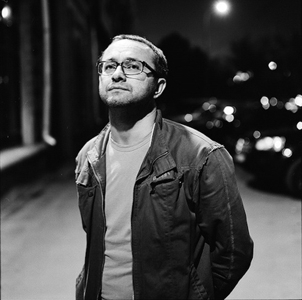Russian Blues: Andrei Zvyagintsev on Elena
05/17/2012
Undercurrents of class, money, and family run through the darkly gorgeous Elena opening this week in New York. The film follows the title character, a middle-aged housewife, as she straddles the wealthy, moneyed world of her older husband and the broken-down, gritty world of her unemployed son. Director Andrei Zvyagintsev lets the story unfold slowly and quietly so that when the major twist happens, it takes a moment to recognize what has just transpired. While Elena might occupy a drab world, Zvyagintsev builds a beautiful film by composing scenes so striking that they could hang on a museum wall if only they would hold still. We caught up with Zvyagintsev and asked (through an interpreter) what kind of reactions the film has gotten and how the film represents Russia.
You mentioned the film was originally supposed to be part of a series of films, but you went ahead on your own because you didn't want to wait for the others. What about this idea made you want to go ahead with the film?
I was just anxious to start. I know I'm being elusive about your question. It's very difficult to pinpoint where the idea comes from. It just comes from within you and explodes like a hot spring... Nobody can really answer where ideas come from. They just come from out there.
The film is so beautifully composed—how did you approach its aesthetics?
I'm lucky to have the producers that allow me to have enough time preparing for the movie. And another very artistic movie I did is The Banishment, we were preparing for that movie for two years before we started shooting... For Elena, it was a little bit shorter; it was about eight months of preparation. By preparation, I mean deciding every scene, every color, every light...[It's] seeing the movie in your head before you actually start that counts. You can take into consideration everything and really figure out what you want...In the first shot of the movie, everything is inside. All those trees are being screwed to the floor. It's camera, action; [next command] is sun rises and the technician raises the sun.
The film was first shown at Cannes last year; has anything about the reactions to the film surprised you at all?
I'm not really aware of the reaction by the audience, because in order for me to know that I would have to go on forums and chat with people who are chatting about it. I try not to abuse that too much, because the movie is already done and made. I don't want the ideas of the audience—their impressions—to influence my own vision of art... I was surprised that some of the audience in Russia perceived it as being anti-Russian or Russia-phobic. There's always people who say we're living in the most beautiful country in the world and you only have to praise it and sing odes to it rather than portraying reality.
Was there an aspect of Russia or life in Moscow in particular that you wanted to express to audiences outside of Russia?
It's very difficult to think in those type of categories about specific things I wanted to say. It's not a documentary, it's a concentration of images... But it's impossible to talk about everything, to portray all sides of Russian life. I would say it's a sketch of a human nature. One of the things that I wanted to emphasize is that money changed human nature. It is especially visible in Russia, because we never had that before due to social circumstances. All of us had 120 rubles per month and then all of a sudden 20 years ago we were thrown into the world of capitalism and consumerism, unprepared. That changed us in an unexplainable way... I'm confident that this story isn't just about Russia, it's about human nature, it's universal. But just in the Russian context, it's more visible and actualized.
Gillian Mohney
"Interview"
